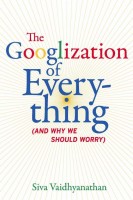Google’s announcement this week of plans to expand to dozens of more cities got me thinking about the broadband market and some parallels to transportation markets. Taxi cab and broadband companies are seeing business plans undermined with the emergence of nimble Silicon Valley firms–Uber and Google Fiber, respectively.
The incumbent operators in both cases were subject to costly regulatory obligations in the past but in return they were given some protection from competitors. The taxi medallion system and local cable franchise requirements made new entry difficult. Uber and Google have managed to break into the market through popular innovations, the persistence to work with local regulators, and motivated supporters. Now, in both industries, localities are considering forbearing from regulations and welcoming a competitor that poses an economic threat to the existing operators.
Notably, Google Fiber will not be subject to the extensive build-out requirements imposed on cable companies who typically built their networks according to local franchise agreements in the 1970s and 1980s. Google, in contrast, generally does substantial market research to see if there is an adequate uptake rate among households in particular areas. Neighborhoods that have sufficient interest in Google Fiber become Fiberhoods.
Similarly, companies like Uber and Lyft are exempted from many of the regulations governing taxis. Taxi rates are regulated and drivers have little discretion in deciding who to transport, for instance. Uber and Lyft drivers, in contrast, are not price-regulated and can allow rates to rise and fall with demand. Further, Uber and Lyft have a two-way rating system: drivers rate passengers and passengers rate drivers via smartphone apps. This innovation lowers costs and improves safety: the rider who throws up in cars after bar-hopping, who verbally or physically abuses drivers (one Chicago cab driver told me he was held up at gunpoint several times per year), or who is constantly late will eventually have a hard time hailing an Uber or Lyft. The ratings system naturally forces out expensive riders (and ill-tempered drivers).
Interestingly, support and opposition for Uber and Google Fiber cuts across partisan lines (and across households–my wife, after hearing my argument, is not as sanguine about these upstarts). Because these companies upset long-held expectations, express or implied, strong opposition remains. Nevertheless, states and localities should welcome the rapid expansion of both Uber and Google Fiber.
The taxi registration systems and the cable franchise agreements were major regulatory mistakes. Local regulators should reduce regulations for all similarly-situated competitors and resist the temptation to remedy past errors with more distortions. Of course, there is a decades-long debate about when deregulation turns into subsidies, and this conversation applies to Uber and Google Fiber.
That debate is important, but regulators and policymakers should take every chance to roll back the rules of the past–not layer on more mandates in an ill-conceived attempt to “level the playing field.” Transportation and broadband markets are changing for the better with more competition and localities should generally stand aside.



 The Technology Liberation Front is the tech policy blog dedicated to keeping politicians' hands off the 'net and everything else related to technology.
The Technology Liberation Front is the tech policy blog dedicated to keeping politicians' hands off the 'net and everything else related to technology.